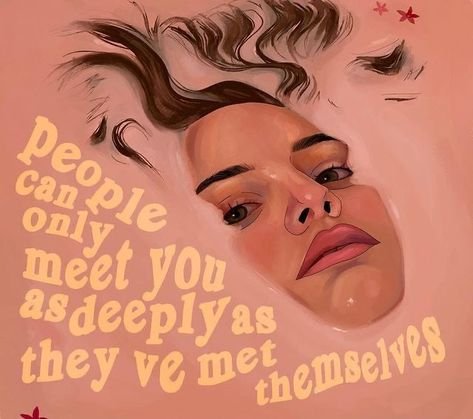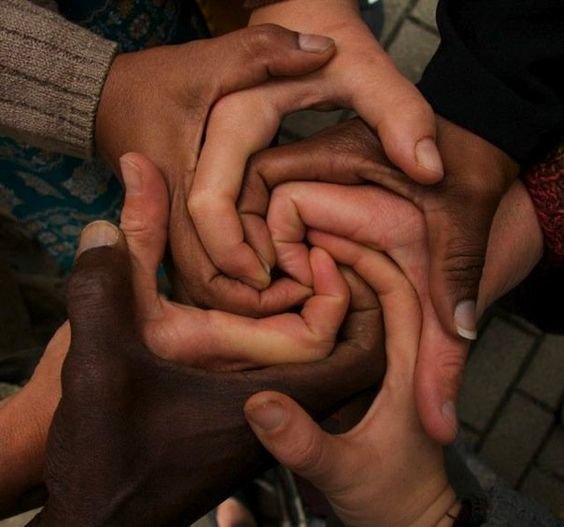Why working with our unconscious is important.
The unconscious mind plays an important role in shaping both our individual and collective experiences. Through exploring and attempting to understand the unconscious we can begin to cultivate more internal harmony and less external conflict, both personally, in relationships and societally. Below, I will draw from Carl Jung’s insights and explain why engaging with the unconscious is crucial.
“Our psyche is set up in accord with the structure of the universe, and what happens in the macrocosm likewise happens in the infinitesimal and most subjective reaches of the psyche” - C.G. Jung, 1961.
Importance to the individual
1. Self-Awareness and Individuation: Jung emphasised greatly the importance of individuation, the process of making your unconscious conscious through gradually integrating its contents. This journey towards the Self allows us to under cover our authentic potential and become more unified and whole.
2. Emotional Healing and Shadow Work: The unconscious mind holds emotional wounds and traumas that, if left unaddressed, can manifest in us as neuroses and psychological issues. Jung advocated for shadow integration, the process of uncovering and integrating these hidden aspects. Through psychotherapy, we can heal from past traumas, reduce inner conflicts, and develop emotional resilience. (In depth shadow integration blogs coming soon).
3. Repetitive Unconscious Patterns of Behaviour: Unconscious drives can lead us to repeat patterns of behaviour that keep us in vicious cycles of stress, shame and pain and prevent us from moving forward. For example, you may find yourself repeatedly attracted to unhealthy habits or sabotaging your success due to a deep-seated fear that's unresolved and unknown to you. These patterns are often autonomous, and operate outside of our conscious awareness and are trying to meet an unmet need or relive a certain experience over and over again in attempts of a different outcome.
4. Relationship Dynamics: Who we attract in relationships is often influenced by unconscious factors. Jung believed that we often project our shadow aspects onto others, leading to the attraction of partners who reflect these unacknowledged parts of ourselves. This projection can result in repetitive, dysfunctional relationship dynamics. By understanding and integrating these projections, we can form healthier, more authentic relationships with less projection, fantasy, and situationships (easier said than done, I know).
5. Un-lived Talents and Repressed Gifts: Any talents or gifts that remain repressed in the unconscious can prevent you from fulfilling your potential and living a meaningful life. Jung argued that not living our destiny due to these repressed aspects can lead to a sense of dissatisfaction, unfulfillment and even depression. Engaging with our unconscious mind can help us discover and nurture our inherent talents, leading to a more authentic life filled with more meaning and purpose.
6. Influence on Mindsets: Our unconscious beliefs and attitudes significantly impact our views on money, health, and success. A negative unconscious mindset can create barriers to financial stability, physical well-being, and personal goals. By bringing any unconscious beliefs we have to light, we can begin to reprogram our mindset and promote a more positive attitude and develop more constructive behaviours in these areas.
7. Access to Archetypal Wisdom: Jung identified archetypes as fundamental, universal symbols residing in the collective unconscious. These archetypes, such as the Hero, the Mother, and the Wise Old Man, can influence our thoughts, dreams, and behaviours. By engaging with these archetypal images through methods like dream analysis and active imagination, we can tap into a deeper wisdom that offers fresh perspectives and knowledge.
8. Creative Potential and Inspiration: The unconscious mind is a fertile ground for creativity and innovation. Jung believed that much of artistic and scientific inspiration stems from the unconscious. Through exploring our dreams, fantasies, and synchronicities, we can reveal their creative potential, bringing forth ideas and solutions that transcend ordinary thinking.
9. Spiritual Growth and Meaning: Engaging with our unconscious can also lead to spiritual growth, an aspect of health and life that is often ignored in modern times. Jung believed that the unconscious holds the key to understanding deeper spiritual truths and experiencing a sense of connection to something greater than oneself, Jung called this the numinous. This journey inward can provide profound insights into the nature of existence, personal purpose, and the meaning of life while developing your connection to a higher power/God.
10. Body-Mind Connection: I’m sure you’ve heard of ‘the body keeps the score’, well the unconscious mind does in fact influence physical health. Unresolved unconscious conflicts can in some cases manifest as physical symptoms and even illness. Working with the unconscious can help you begin to understand and relieve physical issues that don’t respond to standard treatment.
Artist unknown.
Importance for Society and Collectively
1. Collective Healing and Integration: Jung introduced the concept of the collective unconscious, a shared reservoir of experiences and archetypes common to all humanity. Collective traumas and societal conflicts often arise from unconscious projections and unaddressed shadow elements. By cultivating collective engagement with the unconscious, societies can work towards healing ancestral family traumas and historical wounds.
2. Social Cohesion and Empathy: Recognising the influence of the unconscious can bring more empathy and understanding within communities. Jung’s concept of the shadow highlights how projecting our disowned aspects onto others creates division and conflict. By encouraging individuals and groups to acknowledge and integrate their shadows, societies can reduce projection, prejudice and conflict.
4. Avoiding One-Sidedness and Division: Jung warned against the dangers of a one-sided or overly rational approach to life, which can lead to societal imbalance and division (Jung, 1951). In the west, we currently live in a very rational and scientific dominant society. Politics and gender issues can often be radically opposed with no middle ground. By integrating the unconscious, societies can achieve a more balanced and holistic perspective, embracing say both rationality and intuition. This integration helps prevent extreme polarisations and fosters a more unified and cohesive community.
5. Addressing Modern Existential Crises: Jung's insights can be applied to contemporary issues such as environmental crises, technological changes, and existential anxieties. Understanding the collective unconscious can help societies navigate these challenges by fostering a deeper connection to nature, promoting ethical technological advancements, and addressing existential concerns.
Hands forming the shape of the universe aka unity. Artist unknown.
An example of how the unconscious influences relationships
Imagine you find yourself repeatedly drawn to partners who are emotionally unavailable, causing you to feel confused, frustrated, and heartbroken. During therapy, you uncover that this pattern stems from your distant relationship with your emotionally closed father during childhood. Your unconscious mind has been attempting to fulfill the unmet need for emotional intimacy and love that you missed from your father by choosing partners who resemble him, in hopes of finally receiving the approval and affection you’ve always yearned for. Throughout therapy, you gain clarity on these unconscious processes, begin to integrate these experiences, and meet any unmet needs. This understanding helps you comprehend why you are attracted to certain types of partners and how your early experiences continue to influence your current relationship choices.
The unconscious mind is a powerful force that shapes our lives in ways we often don't realise. As we've explored, understanding and engaging with the unconscious is essential for both personal growth, relationships and societal harmony. Whether it's through achieving self-awareness, healing emotional wounds, breaking free from repetitive patterns, or fostering collective empathy, the benefits of working with the unconscious are clear.
Reflective Questions
As you consider the role of the unconscious in your life, here are a few questions to reflect on:
Are there repetitive patterns in your life, particularly in relationships or behaviours, that might be rooted in unconscious drives? What steps could you take to begin understanding these patterns?
Do you recognise any unresolved emotions or traumas that might be influencing your current experiences? How might bringing these into consciousness aid in your healing process?
Reflect on a recent conflict or difficult interaction. Could it have involved unconscious projections? How might acknowledging this change your perspective?
How do you think the cultural or societal norms shape your views and behaviours? What role can you play in cultivating a more empathetic and balanced community?
Artist Unknown.
Next Blog: Practical Ways to Engage with the Unconscious
Now that we've explored why the unconscious is so important, the next step is to learn how to actively engage with it. In the upcoming blog, i’ll unpack practical techniques for working with your unconscious mind, including how it communicates through dreams, symbols, and intuition. I’ll also provide actionable methods, such as dream analysis and shadow work. Stay tuned.
Thanks for reading :)
And If you’d like to work with me please shoot me a message by clicking here
Sarah Jane is a psychodynamic psychotherapist located in 24 Patrick Street, Kilkenny, Ireland and online. She is passionate about the power of the unconscious and working with clients to help integrate it, in hopes that they can then lead a more fulfilling and authentic life.





